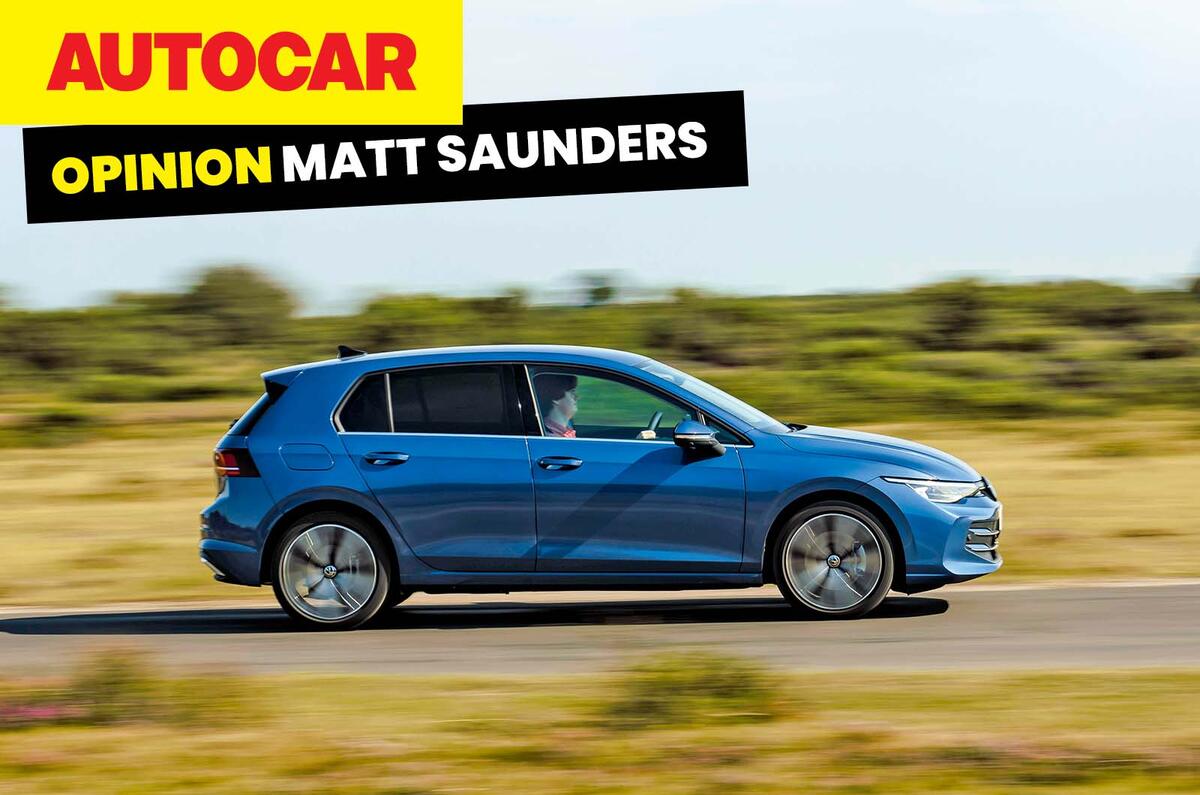Being entirely in favour of, or entirely opposed to, any particular kind of car is a deeply questionable arguing position, I’ve always thought.
You hear people say things like ‘God, I hate electric cars’ all the time; or it could be SUVs, hypercars, microcars or huge off-roaders.
My response is usually along the lines of ‘Go and drive another one’, because the key constant even within individual market classes is difference.
Five years ago the most derided kind of vehicle might have been the plug-in hybrid. No car needs two engines, they said, and no PHEV has a meaningful electric range anyway.
Nobody bothers to charge them up; they’re just a company car tax dodge.
Well, I reckon the PHEV’s time has finally arrived. The Volkswagen Golf eHybrid, road tested only last week, is a mid-sized, mid-market hatchback priced broadly where you would expect it to be, with good performance and refinement and little meaningful compromise to practicality.
It will do 66 miles of real, mixed-road electric motoring on a charge – more around town and at lowish speeds – and it doesn’t need to fall back on its combustion engine to get enough performance to keep up with the traffic.
Then, when the petrol engine’s running, it will return 60-70mpg in free-flowing urban driving, dropping to just under 50mpg at motorway speeds.
You can charge its 20kWh battery at home, from flat, in less than three hours, or in less than 30 minutes on a rapid charger.
And if you’re in a position to do that a fair bit, as I was during the road test, you might well find that, after a week’s testing – some of it quite intensive performance testing, needless to say, with more than 500 miles travelled in all – you’ve actually only used half a tank of petrol and averaged better than 100mpg.
That’s the kind of fuel economy number that the Autocar road test has never seen, as far as I’m aware, and it fairly stopped me in my tracks as I committed it to our test results.
The trouble is, it’s a big fat lie or, if we’re being charitable, a neat piece of sleight of hand.
The car is commendably efficient, I will admit: as efficient, even, as many compact EVs we have tested of late when running on electrons, and it’s more efficient than many compact combustion-engined cars when running, in just the right environment, on hydrocarbons.
The problem is the accounting; and I wonder, frankly, if it’s a problem that car makers must address before people can fully accept the genuine potential that PHEVs have in today’s motoring landscape.
Most have trip computers that take account of both fuel efficiency in miles per gallon and energy efficiency in mpkWh, which you can reset and monitor just like any other trip computer data.








Join the debate
Add your comment
Yep, PHEVs are the correct answer for so many people, especially families. Sales absolutely BOOMING over here and elsewhere.
Holy Moly. Plug-in hybrids emit CO2, toxic gases, NOx and particulates. EVs don't. Combustion cars also burn imported oil from corrupt petro-states, while EVs can use clean renewable energy generated within the UK, making the UK richer. Why is it so hard for Autocar to actually focus on what matters?
But let’s not forget that mostly the fuel consumption is a pretty academic consideration. Most plugins are extremely expensive and buyers of new ones should be more concerned by the high depreciation cost which will inevitably dwarf any fuel cost considerations.